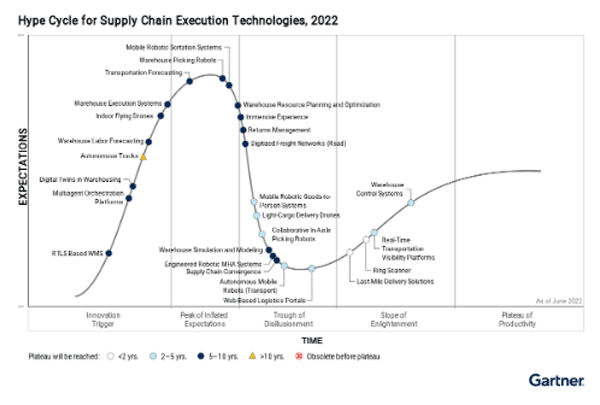A couple of weeks ago, I wrote a column based on data collected by a recent survey of supply chain executives by PwC.
Rather amazingly, it found that just 17% of respondents said their investments in supply chain technology have delivered the expected results – a very disappointing number to say the least. (See Are Investments in Supply Chain Technologies not Delivering to Expectations?)
Gilmore Says.... |
 |
| EVERYONE understands how important change management is – yet most companies underinvest. |
 |
What do you say? |
|
| Click here to send us your comments |
| |
|
|
|
As I noted in that column, another 21% said their investments need some additional time for the implementation to play out. I am going to assume that means the expected results could still be delivered, just in a longer timeframe than planned.
So, if the data is right, either 87% or 66% of companies don’t believe their supply chain technology investments are delivering to expectations. Does that sound right?
Unfortunately, my view is that if meeting expectations equates to “really happy,” I would say those numbers are probably about right. If meeting expectations is defined as generating the expected ROI, the numbers may still be largely correct.
That is not a good state of affairs.
The survey found companies cited a number of reasons for this lack of results, from a failure of change management to poor requirements definition and to doing a bad job of tracking the benefits.
All this really got me thinking about the drivers of satisfaction in technology investments – and the opposite. Here is something of a framework for those thoughts.
First, it seems to me that the type of technology is a key driver of the range of results. I am highly confident, for example, that deployment of what is called Voice picking technology in distribution centers delivers to expectations at lot higher percentage of the time than say digital twins, or certainly ERP.
Some technologies by the scope/effort of their deployment are inherently more likely to disappoint. But it also depends on where a technology is in terms of maturity.
Below is a Gartner technology “hype cycle” for supply chain execution technologies from 2022. The whole model is based on the notion that new technologies, after a period of hype, inevitably are shown to disappoint (the dreaded “trough of disillusionment”), before for some finally reaching a stage of consistently delivering results.

So the inherently higher risk of some technologies versus others, and where a technology is in terms of its maturity, I believe greatly influences the percent of companies getting the promised result
The vendor providing the technology is also a factor.
Within any given technology area, some providers have a better success rate than others. The problem of course is that there is usually no data available on each vendor’s batting average. But there are things that can be done, starting with making this a key selection attribute, when the sad reality is that it often is not, with the decision much more focused on technology capabilities.
I will also note I have several times seen research that shows in-house developed software projects are much more likely to disappoint than adoption of commercial packages, as a side note.
Then there is this variable: the skill of the team deploying the technology, for both the vendor and the company itself.
Over the years, I have seen several internal studies by supply chain software vendors that have conclusively shown that the number 1 factor in the level of success in a deployment is the skill of the project manager.
Which one are you getting?
But the same must hold true for the company project manager – what is his or her level of experience in terms of experience and track record in projects of similar scope and scale? In my experience, this is not considered adequately enough by many companies.
There are many other internal company factors, such as staffing levels for the project, and do team members allocate their actual time to the project as assigned in the beginning.
And most important to me, how is change management going to be handled? Cited as noted in the PwC survey results, EVERYONE understands how important this is – yet most companies underinvest. And we wonder why technology investments aren’t meeting expectations.
After putting that together, it seems to me it could be used to classify how risky a project is at the start, based on:
• The type of technology and its inherent risk, plus its maturity
• The track record of the selected vendor
• The rack record and experience of the project managers on both sides
• The resources applied to the project and investment in change management.
Once that assessment is made, plus estimating the level of impact if the project doesn’t go well, a planned investment could be scored, with personnel and supporting programs developed accordingly.
And if we do that, I am confident the percentages of projects the disappoint will be a lot lower than 83%.
What is your reaction to these thoughts on supply chain tech ROI and risk? Let us know your thought at the Feedback section below.
Your Comments/Feedback
|